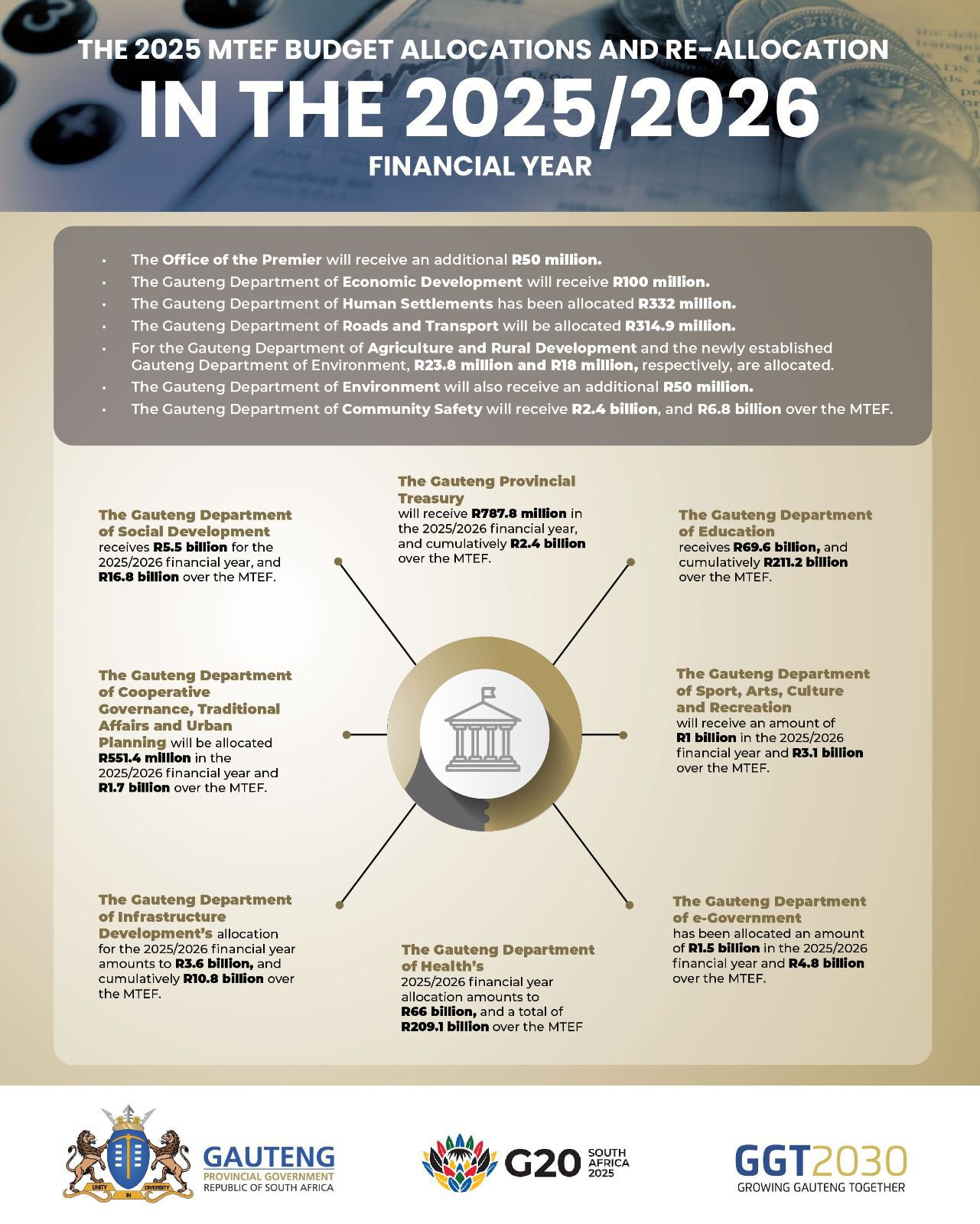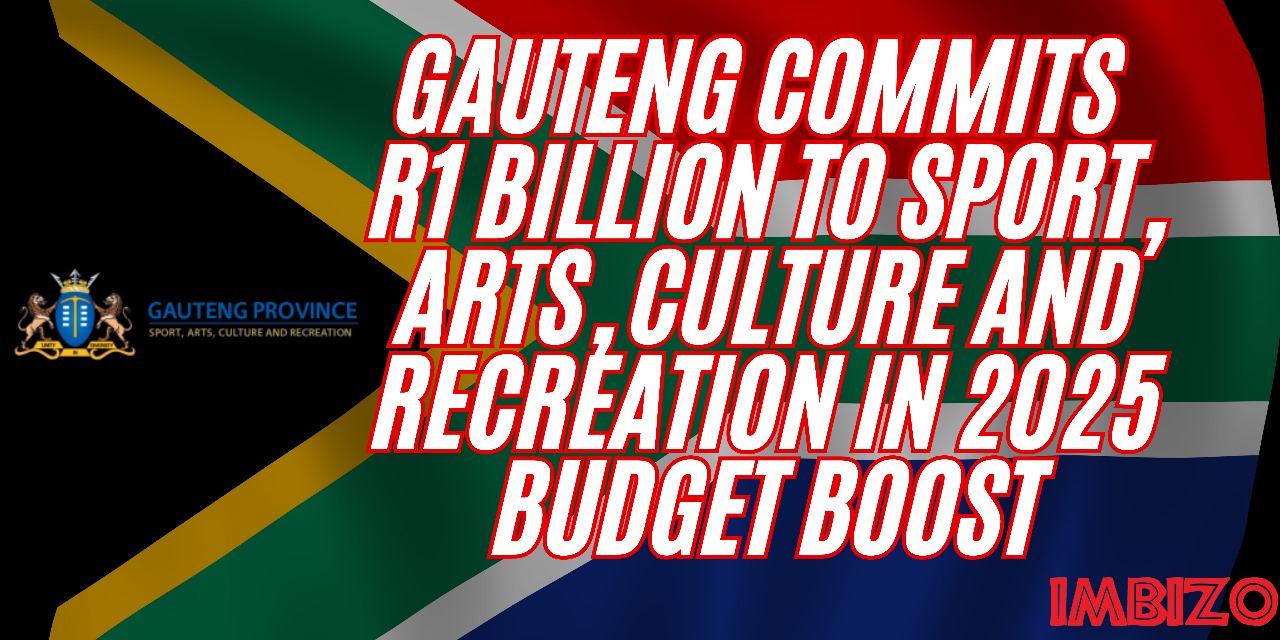In a bold reaffirmation of the creative and cultural sector’s value to Gauteng’s social and economic fabric, the provincial government has allocated a substantial R1 billion to the Department of Sport, Arts, Culture and Recreation (SACR) for the 2025/2026 financial year, with a projected R3.1 billion set aside over the Medium-Term Expenditure Framework (MTEF) period. This significant investment comes as part of the newly re-tabled Gauteng 2025 Budget, presented by MEC Lebogang Maile, which now totals R172.3 billion — an increase of R886.6 million from the budget tabled in March.
This allocation is more than just numbers — it’s a critical lifeline for the province’s artists, athletes, cultural institutions, and community heritage projects. From township jazz sessions, literary festivals, and indigenous heritage programmes to local soccer leagues and provincial sports academies, this budget confirms that the arts and sports are no longer treated as peripheral, but as central to Gauteng’s social cohesion and economic recovery strategy.
With over R1 billion earmarked for the year, stakeholders in the creative industries are hopeful for increased funding for:
– Community arts programmes
– Local festivals and exhibitions
– Infrastructure upgrades for community halls, theatres, museums, and stadiums
– Development programmes for young athletes and creatives
– Heritage conservation initiatives
– Music, film, and literature support schemes
The longer-term commitment of R3.1 billion over the MTEF period signals government’s intention to maintain this momentum and provide stability for projects requiring multi-year funding cycles.
While the SACR’s R1 billion share is a major win, it sits within a cautiously optimistic budget strategy shaped by tough economic realities. The provincial economy grew just 0.8% in 2024, with mounting debt obligations and constrained revenue streams leading to baseline reductions across several departments.
Nevertheless, Gauteng reaffirmed its status as South Africa’s economic nerve centre, responsible for 33.8% of the national GDP, and remains focused on balancing fiscal discipline with impactful service delivery. The 2025 Budget prioritizes essential sectors while safeguarding cultural and sporting programmes as tools for social upliftment and economic participation.
For many communities, especially in previously underfunded townships and peri-urban areas, sport and arts facilities provide safe spaces for youth development, job creation for artists and coaches, and platforms to preserve indigenous languages, stories, and cultural practices. Events like the Gauteng Sports Awards, the Mzansi Cultural Festival, community theatre productions, and traditional dance competitions depend on such public funding. In the past, funding shortfalls often led to the cancellation or scaling down of these important community-building event
The R1 billion allocation to the Department of Sport, Arts, Culture and Recreation is a bold step in recognizing culture and creativity as core pillars of Gauteng’s identity and economy. Amidst financial challenges, this is a clear message: the province is investing in its people’s stories, talents, and spirit.
The hope now is for transparent, efficient distribution of these funds, with a focus on township-based projects, youth development, and initiatives that reflect Gauteng’s rich cultural diversity.


Dealing with disability people teaching them skills development carpet, knitting, beading and jewellery. Students when reach 18 years rejects them from school. Principal invited me introduced to parents after attend classes from Monday to Friday from 2006 until now without benefit need help.